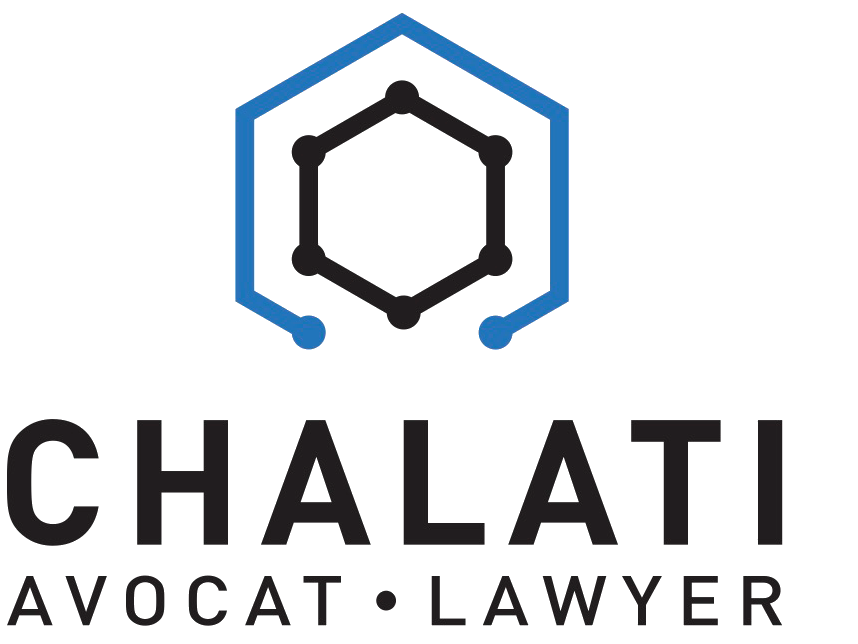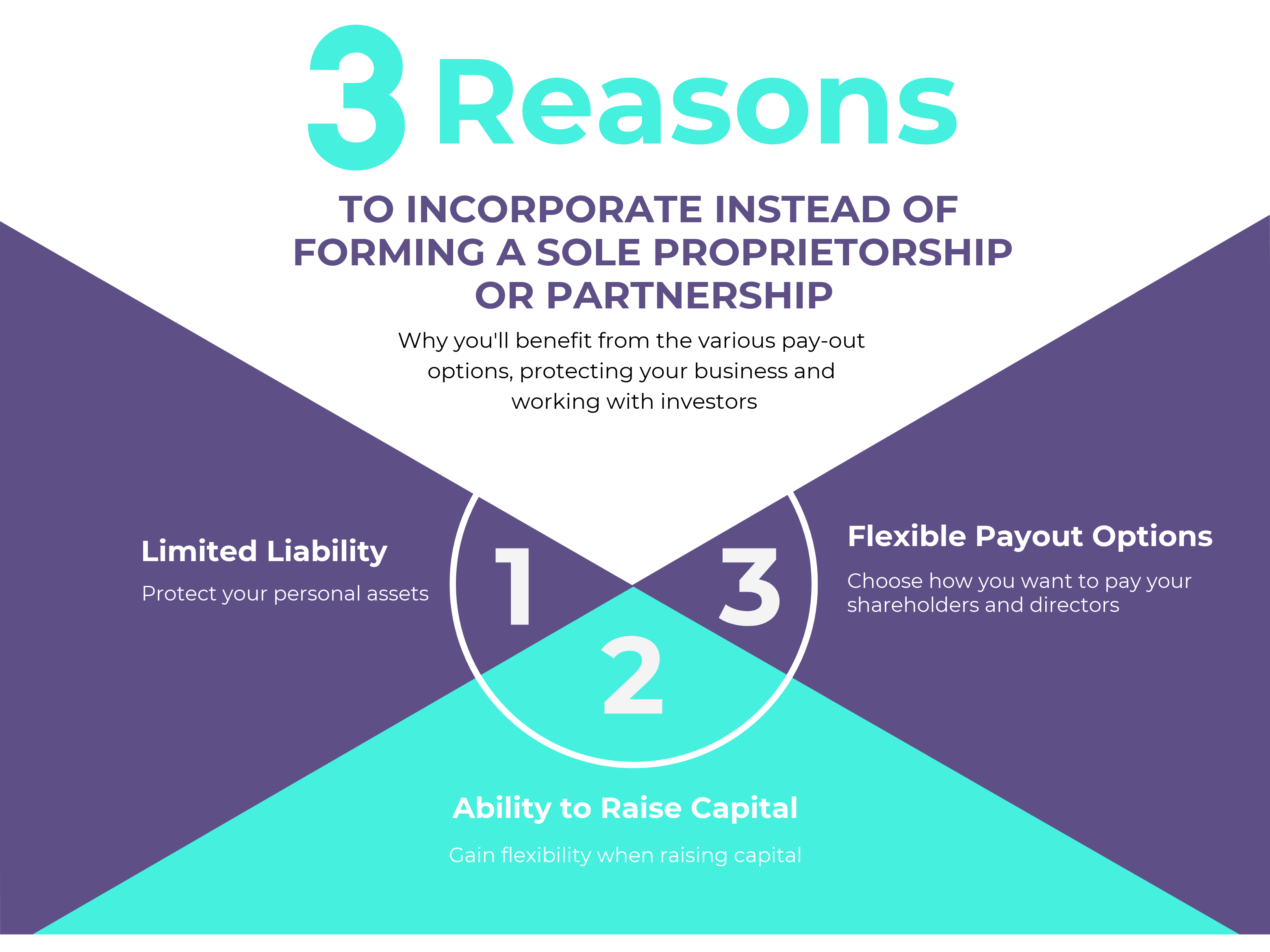3 Reasons to Incorporate Instead of Forming a Sole Proprietorship or Partnership
Starting a business can sometimes be a daunting and overwhelming task. Tack onto it the important decision of choosing the legal structure of your business. From sole proprietorships, partnerships to corporations, the choice is not always evident with benefits and drawbacks to each. Often times, entrepreneurs faced with this decision will go for the simplest and cheapest structure, a sole proprietorship, which requires minimal paperwork and few fees.
However, choosing the simplest and cheapest structure can sometimes lead a business down the wrong path from the get-go. In this article, we will be outlining the three main benefits of incorporating a business versus opening a sole proprietorship or partnership that are often times overlooked by entrepreneurs.
- Limited Liability
Sole proprietorships and partnerships do not have limited liability as they are not separate legal entities from their owners. This means that the personal assets of the owners of the business are at risk with all the business’ liabilities. For instance, if a sole proprietorships or partnership creates a product that sickens a consumer, the consumer can secure a judgement against the personal assets of the owners of the business. In another example, if the sole proprietorship or partnership defaults on a loan, the lender can come after the personal assets of the owners of the business. Therefore, the actions of the business can expose the personal assets of the owners of the business, even if the owners were not acting as representatives of the business during the said action.
On the other hand, when a business is incorporated it becomes a separate legal entity from its shareholders, meaning that in the event the corporation goes bankrupt or is faced with a lawsuit, the personal assets of the shareholders of the corporation will be protected. This is one of the main benefits of incorporating a business versus opening a sole proprietorship or partnership.
- Flexible Pay Out Options
Sole Proprietorships and partnerships do not have flexible pay-out options for their owners. The owners of the business will be paid through a salary and taxed at the progressive rate.
On the other hand, when a business is incorporated, the corporation can choose how it would like to pay-out its directors and shareholders. The corporation can pay-out by way of salary, dividends and loans, which allows the directors and shareholders to benefit from lower rates of income tax that would otherwise not be available.
- Ability to Raise Capital
Sole Proprietorships and partnerships have limited ability to raise capital as there are no formal mechanisms that allow the business to sell shares of their company to potential investors. As such, these businesses will rely mostly on loans in order to raise capital in the business. This ultimately can lead to the business defaulting on its loans which can then expose the personal assets of the business owners.
On the other hand, when a business is incorporated, it has the benefit of having flexible financing options. The business can choose to issue shares to family, friends or potential investors to raise capital. The corporation will also be more likely able to secure a loan or an investment due to the limited liability aspect.
As such, since an incorporated business is a separate legal entity from its shareholders and directors, it will benefit from several advantages that are not available to sole proprietorships or partnerships. Corporations will be able to reap the benefits of limited liability thus limiting the exposure of their personal assets. They also have the ability to raise capital through shares and pay-out their directors and shareholders through dividends, salary or loans. Although this structure is slightly more expensive and more complex to create, it has several benefits that largely outweigh sole proprietorships and partnerships.
For more information on business incorporation, please visit our business incorporation page or contact us for more details.

